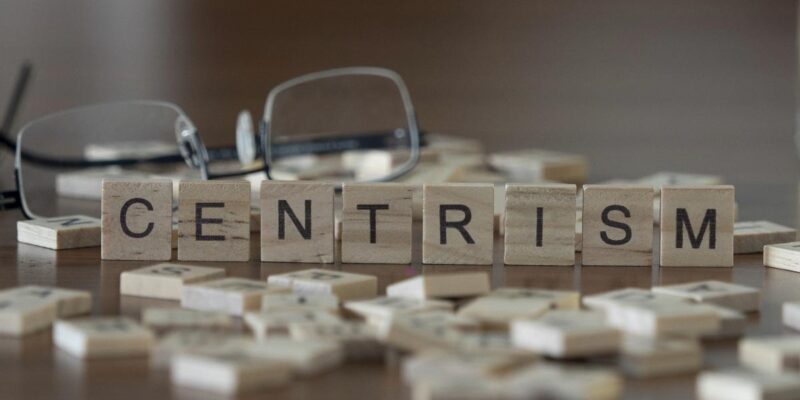
The middle, compromising stance of those called “centrists” or “moderates” is very often mistaken for a balanced and reasonable position. Little else is worse than an entire world tricked into what rationally amounts to crime, thinking it is balanced, realistic, and optimal. The centrist has become convinced that their middle position is the only fair and just stance, and that anything else is imbalanced extremism. The opportunity to rationally examine these assertions has never been as important as it is now.
Let us start by realizing that most people do not actually call themselves centrists yet are convinced that their views are a proper mixture of ideas, a negotiation to meet somewhere in the middle, which is what centrism entails. Whether this is a mixture of safety and freedom, socialism and capitalism, or collectivism and individualism, few have admitted that their unique mixture ratio is behind their confidence in their own political views. Most are convinced that they have the right mixture, while they believe those with different views have their mixture somewhat off.
How many traditional conservatives are against socialism without realizing that many of their views are based in socialism? They do not put the label of “socialism” on their beloved military, police, and public schools, but these are textbook examples of socialism. How many progressives for wealth distribution via government will truly admit that they want the profit motive to remain as the deep well from which they can perpetually draw? Nearly everyone has a mix, if only so they can satisfy themselves that they are not radical extremists.
To further the confusion, there are parallels in our world that suggest to us that a mixture is best, like the alloys of metals being more useful than pure metals alone, or the right temperature being a mixture of not too hot and not too cold. It is intuitive to infer a moderate compromise in social, economic, and political matters.
Now let us see the mixture from a different perspective. Engineers do not strive for a healthy balance of both planes that continue to fly and planes that fall from the sky. They are very imbalanced in their view that all planes should continue flying without issue, to every possible extent. We would find it unacceptable if the legal system outwardly promoted a healthy mix of bringing criminals to justice and letting them do whatever they want. The point to see here is that we must not mix poison into our food and call that a healthy balance.
No percentage of violent crimes have a fitting place in civilization, same with fraud, corruption, and a long list of wrongful acts. The practice of forceful plunder through the apparatus called “government” is the rational equivalent of criminality, asserting that the ability to do so equates to the right to do so, and dismissing other peaceful means for funding as if they are inferior. No degree of what is rationally criminal is somehow a quality ingredient to mix into one’s political stance, even if the current laws legitimize it. That it comes from the basis of “might makes right” and violates inalienable rights means that justifying any degree of it makes a person complicit with this criminality, which is objectively criminal and evil because objective reality is altered thereby, to the subtraction from objective and measurable well-being.
Well-intentioned people of all kinds mix in ideas that are objectively criminal, not seeing with rational eyes because they used the going laws as their only measure for what is just. Even those reaching for higher moral ideology believe in things like city-states and small or local governments as the solution, as if to not have fully admitted that nobody is fit or entitled to rule, whether they are a person or a group. It is the rational that gives us the tools to collaboratively orchestrate law and order, and the same that stands as the constant standard for what is good and evil, what preserves rational rights and what depletes them. If rationalism can reveal what toxic and evil justifications we might have mixed into our views, it can be the tool for helping us clean up our views, even if someone thinks that doing so will amount to extremism.








